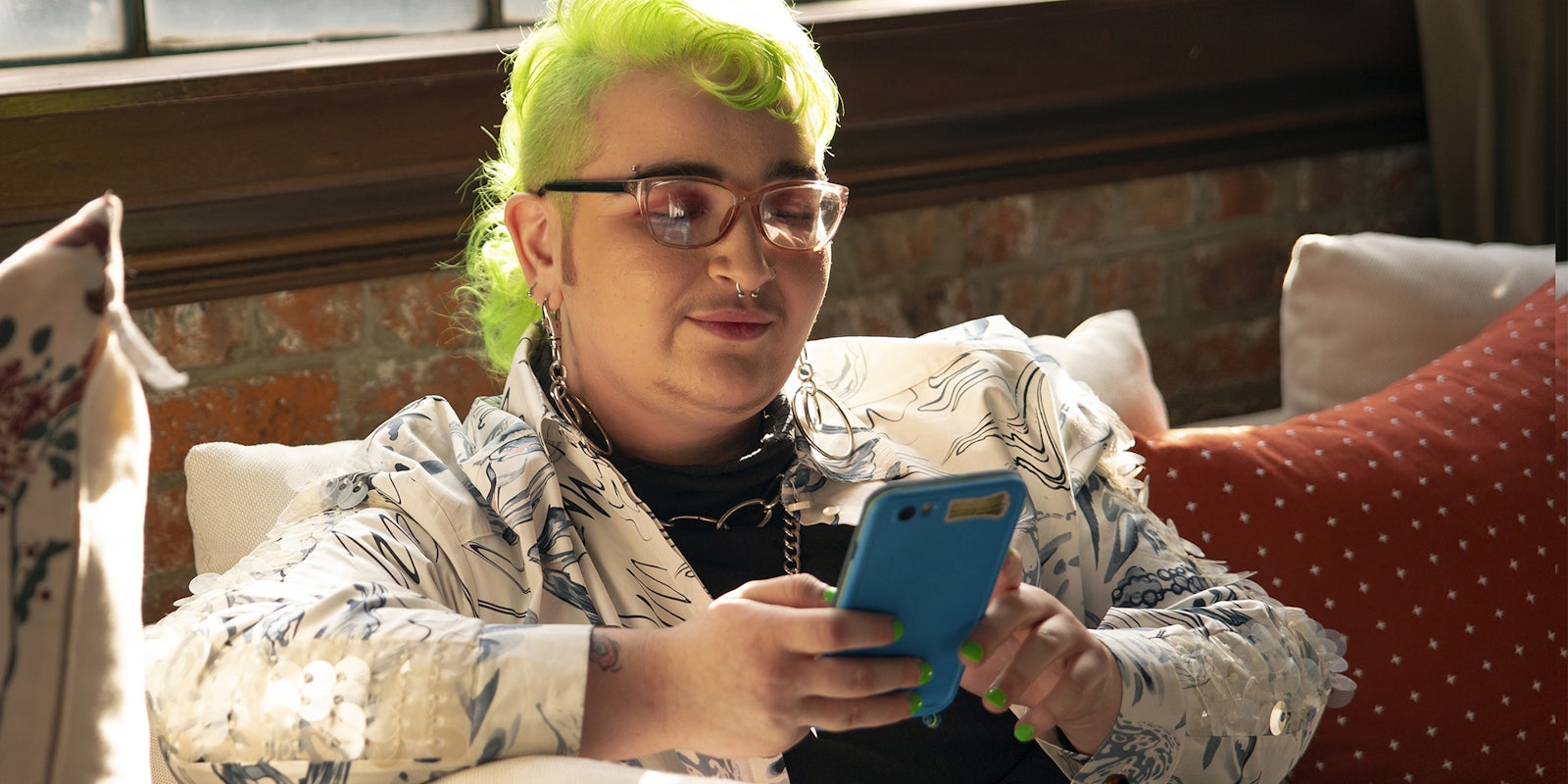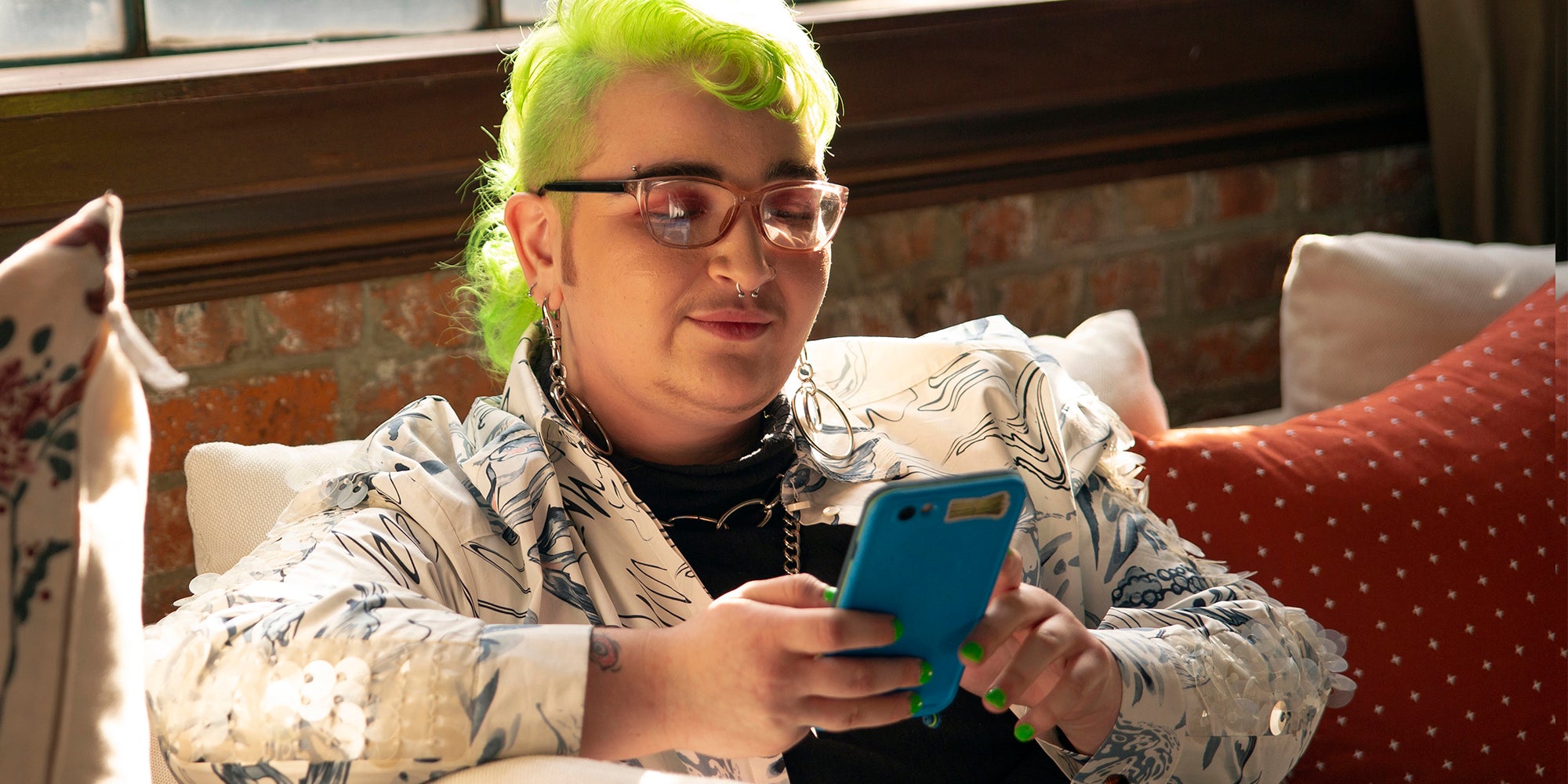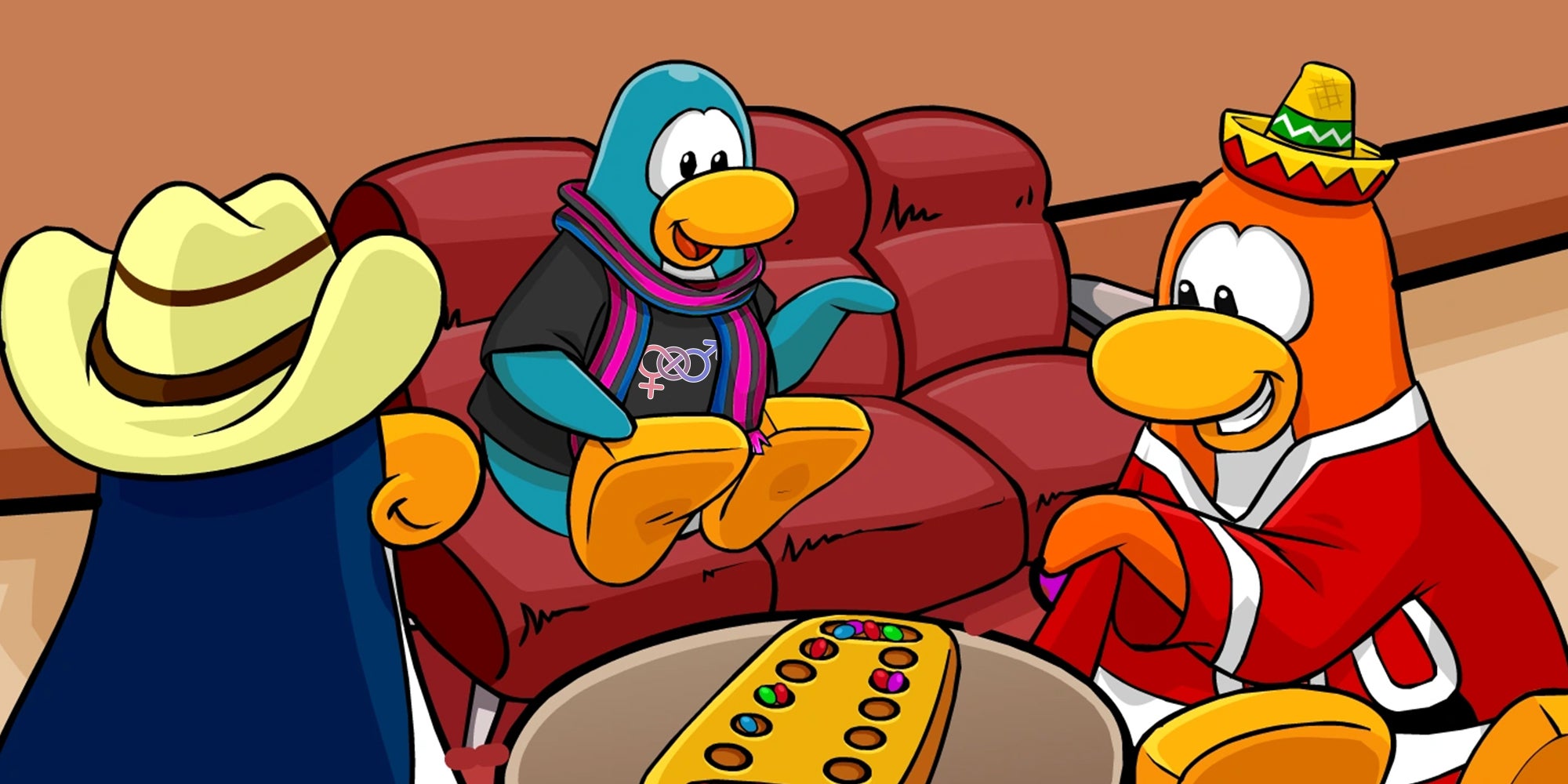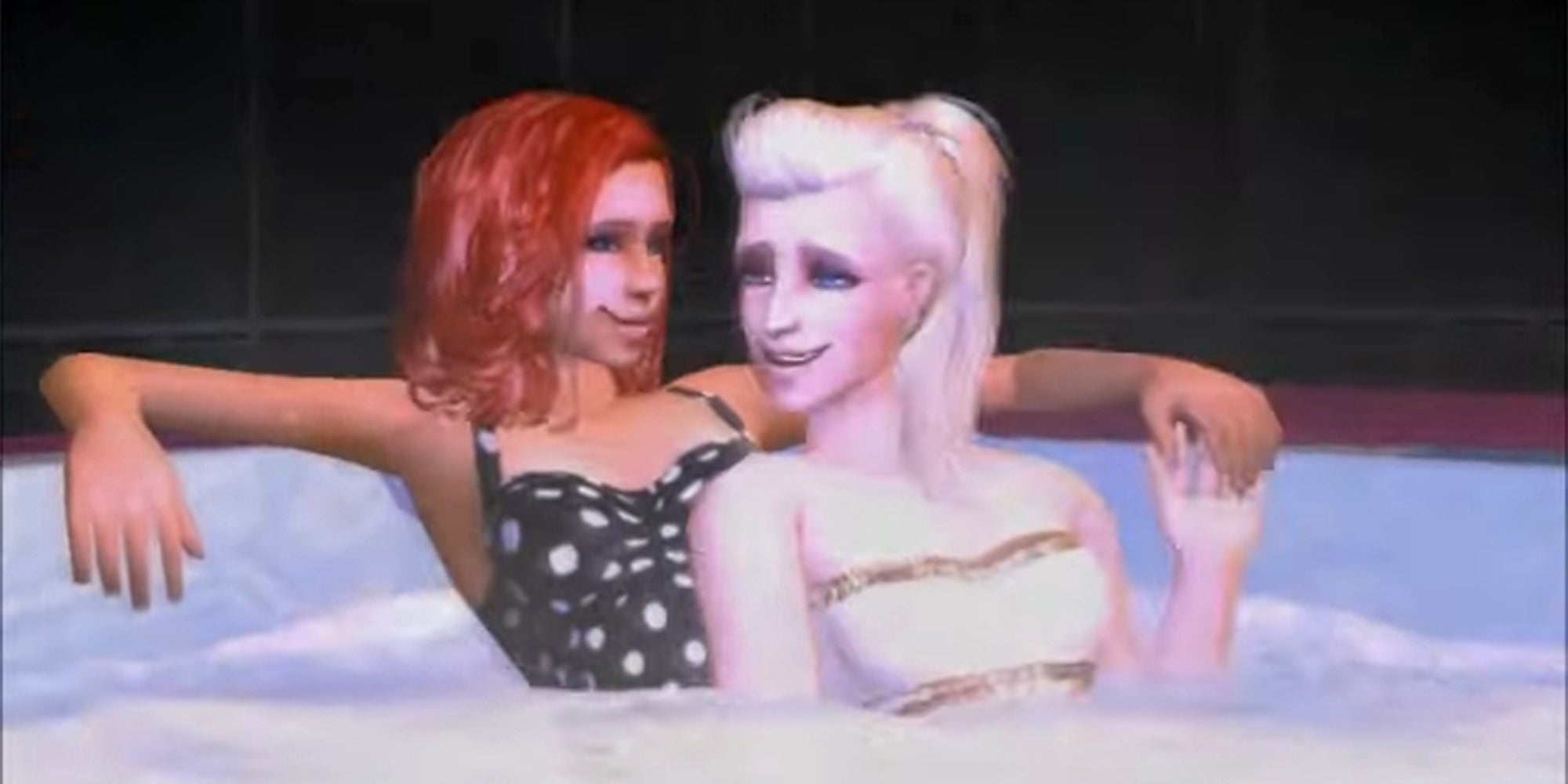The first time Sarah Kirsch heard about the “Lesbian Masterdoc,” a publicly shared document meant to help people figure out if they are a lesbian, she was deeply closeted and afraid of anything associated with queerness. So, she avoided the masterdoc; Kirsch had a sinking suspicion that if she read it, it would reveal that she was queer.
Kirsch stayed away from the masterdoc until shortly after marrying a cisgender man in the middle of 2021. A bunch of “gay feelings,” she said, started to pop up. When she came across a TikTok that suggested she read the masterdoc, she decided to finally do so.
“Then I read it and then I was like, ‘Oh, shit,’” Kirsch told the Daily Dot in a phone interview. She now identifies as queer and describes herself as someone who is attracted to feminine energy, regardless of someone’s gender.
The Lesbian Masterdoc is a common nickname for a document titled “Am I a Lesbian?” that was written in 2018 by Angeli Luz, a life coach and reiki healing specialist. The 30-page piece was first published as a Google Doc on her Tumblr page. (Luz did not respond to the Daily Dot’s requests for comment.)
In the document’s “How do I know if I’m a lesbian?” section, Luz suggests readers consider if they feel they can be “truthfully happy” with a man, rather than whether or not they are “attracted” to men, to answer the section title’s question.
“Ask yourself if you can have healthy fulfilling relationships with men and actually wanna be with them. If being in relationships with men isn’t appealing to you, if you can’t truly see yourself ending up happy in relationships with men, or if your attraction to men makes you uncomfortable, you may be a lesbian,” Luz writes in the masterdoc. “Lesbian isn’t a dirty word and being a lesbian is beautiful.”
Four years after it emerged online, the Lesbian Masterdoc is a controversial text that both lacks historical awareness and speaks to a generation that has largely explored queerness on the internet. Even though identity is complicated, the masterdoc has helped many lesbians and non-lesbians alike find certainty in who they are. But for others, it’s already outdated and includes transphobic sentiments that perpetuate harmful ideas used to gatekeep marginalized people from the lesbian community.
The Lesbian Masterdoc discusses compulsory heterosexuality, or the concept that all people assigned female at birth are forced to be attracted to men. It attempts to reconcile confusing feelings that queer people might have had about being attracted to men versus women. It lists miscellaneous criteria, like wishing one were a lesbian, having to “learn” to love men, or an attraction to male television or book characters rather than real men—which Kirsch found impactful—as possible hints of lesbianism.
Luz, the author, reassures the reader that to be a lesbian, one does not have to relate to the entire document, have identified as a lesbian in the past, or plan to in the future.
“It’s ok to try on the lesbian identitiy and see how it fits you,” she writes. “Allowing people to identify based on where they are willing to put their romantic and sexual energy is more powerful and gives people agency.”
The Masterdoc has received over 32,000 notes on Tumblr since 2018, though the links on Luz’s original post no longer work. The document now lives on DocDroid, a site that allows PDF sharing.
Luz’s piece had a renaissance during the first year of the COVID-19 pandemic, a time when a surge of people came out. According to analytics from Google Trends, searches for “am i a lesbian masterdoc” and “lesbian masterdoc” spiked between February and June 2020, with subsequent peaks in December 2020 and June 2021.
The Lesbian Masterdoc’s popularity is surprising, according to professor Ann Cvetkovich of Ontario’s Carleton University, because compulsory heterosexuality—coined by lesbian poet and writer Adrienne Rich in her essay of the same name in 1980—and other facets of radical lesbianism present in the masterdoc are considered transphobic and aligned with trans-exclusionary radical feminists (TERFs).
Generally, TERFs believe that trans women are men and are dangerous to cisgender women. The TERF movement started in the 1970s in radical feminist and radical lesbian groups, and the term was created after factions of women and/or lesbians proved to be transphobic and doggedly transexclusionary, Vox reports. Modern-day TERFs have made headlines for their beliefs that “transactivism erases lesbianism.”
Not all lesbians are TERFs, and not all TERFs are lesbians—but the lesbian liberation movement and TERF movement had overlap. Rich, for example, was transphobic.
But Cvetkovich said that the masterdoc approaches compulsory heterosexuality in a trans-inclusive way. For example, she felt that Luz’s description of lesbianism focuses more on sex and intimacy rather than gender. Luz’s concept of lesbianism is in line with Cvetkovich’s, who identifies as a lesbian and sees lesbianism as a gender non-conforming identity.
“I appreciate this article for trying to keep the category of ‘lesbian’ alive,” Cvetkovich told the Daily Dot.
Other lesbians see less meaning in the document—and consider its transphobia unavoidable.
C, a nonbinary lesbian who declined to share their full name with the Daily Dot out of fear that TERFs would “find [this] article,” said they find the entire masterdoc to be transexclusionary and preaching tenets of political lesbianism. Political lesbianism dictates that sexuality is a choice and that heterosexuality and oppression via heterosexuality can be avoided by deciding to be a lesbian.
The masterdoc mentions transness in its “Gender Feelings” section, where it addresses the differences trans women and gender non-conforming lesbians might notice when interacting with women before and after coming out as trans. Luz describes “knowing you’re attracted to women, but feeling weirdly guilty and uncomfortable trying to interact with them as a straight man, and only later realizing you’re actually a trans lesbian,” or “being nonbinary and taking a long time to sort through being able to respect/understand your nonbinary identity and your lesbianness at the same time.”
“Leaving trans identities out of anything meant to be consumed by queer or questioning people does a disservice to the community as a whole,” C told the Daily Dot in a Twitter direct message. They feel the masterdoc has furthered a modern renaissance of political lesbianism, transphobia, and biphobia, and that it “hurts actual lesbianism.”
Zoe Ramirez, a nonbinary lesbian, thinks the masterdoc could be read as exclusionary to lesbians who were assigned-male-at-birth. Ramirez said so much of the document highlights early signs of lesbianiam specific to people assigned-female-at-birth in the “gender feelings” section, such as feeling disconnected from womanhood.
“It seems to me that maybe the writer of the doc was writing about their own lived experiences and couldn’t speak on other’s experiences,” Ramirez told the Daily Dot in a Twitter direct message. “But there could have been an effort to get people’s input on that.”
Katie Wallace, a nonbinary lesbian who has read the masterdoc almost 20 times, says that they have used other lesbian texts to supplement it, like Leslie Feinberg’s Stone Butch Blues, which tells the story of a butch lesbian in the 1970s, to round out their understanding of lesbianism and gender. Other lesbians have cited Julia Serano’s Whipping Girl about transfeminism and modern-day sexism as a good follow up to the masterdoc.
Other, less official resources for figuring out one’s sexuality oneline include TikToks about queerness, Reddit threads on lesbianism, video essays, LGBTQ servers in online games, and ”Am I Gay?” quizzes.
Wallace, however, credits the masterdoc with helping them realize that being a lesbian doesn’t necessarily mean identifying as a woman.
“The word lesbian is very encapsulating for how I felt about both my gender and my sexuality,” Wallace told the Daily Dot. “I love being able to call myself a lesbian. I love that word.”
Mey Rude, a trans lesbian, journalist, and trans sensitivity reader, feels similarly. In an email interview, she told the Daily Dot that she feels “affirmed, celebrated, and centered as a woman, and as a queer woman” by calling herself a lesbian, and that she can’t ever hear the word enough.
She’s also a fan of the masterdoc and says she doesn’t understand the criticism that the document is transphobic.
“It’s a document about lesbian feelings and experiences, and many trans people have those feelings,” Rude told the Daily Dot. “As a trans woman, I find it very helpful and relatable.”
Willow Faye, a trans lesbian who hosts Trans 101 on Twitch, also thinks the masterdoc is a fantastic, trans-inclusive resource that opens the label “lesbian” to a multitude of people who might not have felt they could use it before.
Though she acknowledges that compulsory heterosexuality was first written about by someone who was transphobic, she noted that the concept is a tool that can be used in many different ways.
“If [compulsory heterosexuality] can help somebody contextualize their experience in such a way that does not lead them down a path that belies bigotry and exclusionary rhetoric and things like that,” Faye told the Daily Dot in a phone interview, “then all the better.”
The masterdoc is a tool, too. Some, like Wallace, read it and are led to identify as a lesbian; others, like Kirsch, use it to unlock their queerness.
Luz’s document doesn’t exist in a vacuum. It exists in a digital toolbox that includes TikToks, subreddits, and video essays. And, of course, a whole lot of Googling.





